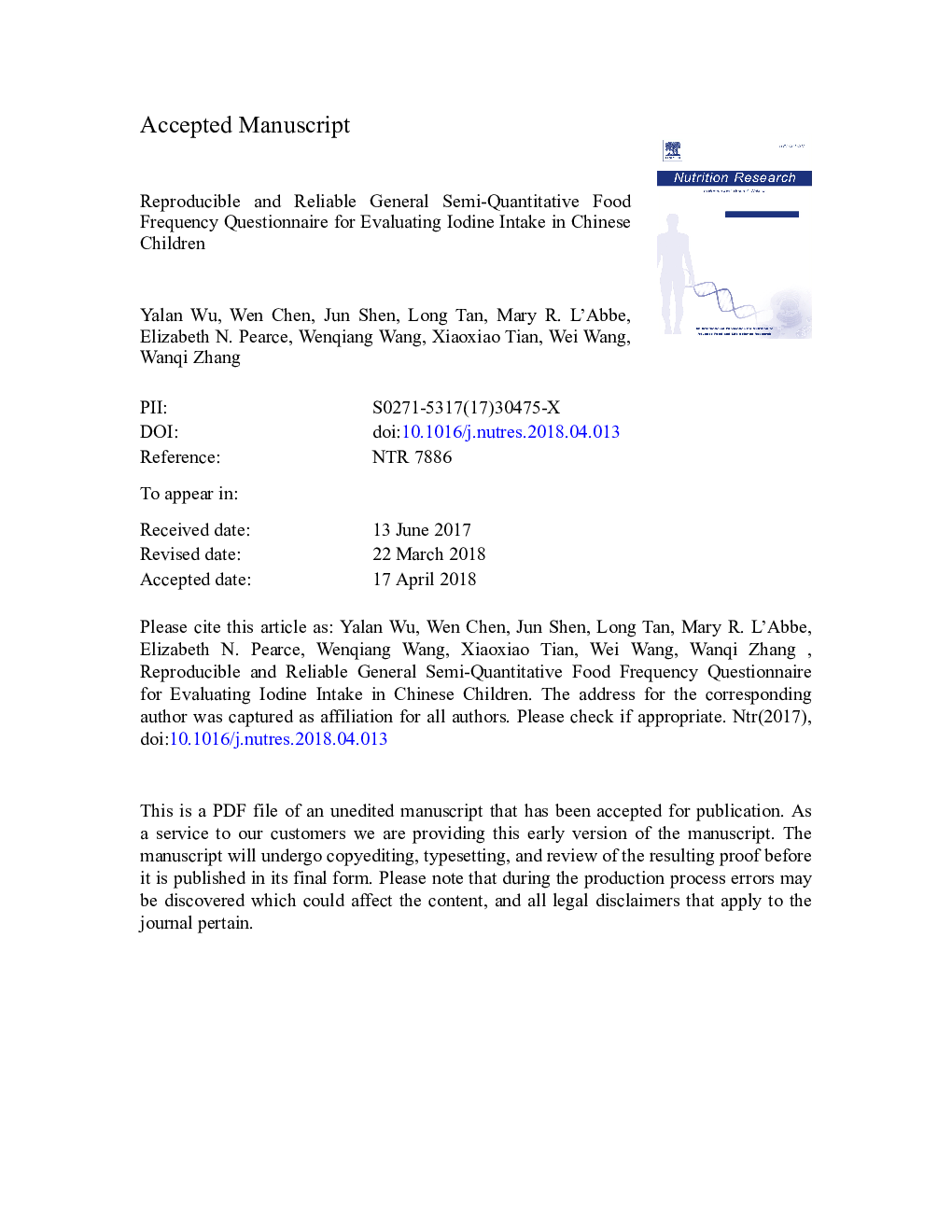| Article ID | Journal | Published Year | Pages | File Type |
|---|---|---|---|---|
| 8634089 | Nutrition Research | 2018 | 34 Pages |
Abstract
Iodine deficiency is a global issue that is correlated with a variety of diseases and can affect individuals of all ages. We hypothesized that a general, semiquantitative food frequency questionnaire (FFQ) could be a valuable tool to evaluate iodine intake in children. Study participants comprised 687 healthy children between the ages of 7 and 13 years. The FFQ was developed to assess habitual iodine intake over a 6-month period (FFQ1). A 3-day estimated food diary (3DEFD) and the habitual daily iodine intake, calculated from 2-repeated 24-hour urine iodine excretion, tested the intermethod relative validity of the FFQ. There were 92 children who also repeated the FFQ (FFQ2) 3 weeks later to assess for FFQ reproducibility. Iodine intake estimated by FFQ1 + water was significantly higher than that indicated by the 3DEFD + water (204 μg/d vs 156 μg/d, P < .001), whereas there were no differences between habitual daily iodine intake and FFQ1 + water (185 μg/d vs 204 μg/d, P = .223). The interclass correlation coefficients of iodine intake estimated by the FFQ1 and FFQ2 were 0.72 (P < .001). The FFQ1 + water was moderately correlated with the 3DEFD + water (Spearman correlation coefficient = 0.57, P < .001) as well as habitual daily iodine intake (SCC = 0.34, P < .001). The subjects classified into the same or adjacent quartiles ranged from 32% to 93%. The κ value α was 0.46 for FFQ1 and FFQ2 (P < .001) 0.27 for FFQ1 + water and 3DEFD + water (P < .001), and 0.09 for FFQ1 + water and habitual daily iodine intake (P < .001). The results showed this FFQ is a reliable and reproducible tool in evaluating iodine intake in Chinese children.
Keywords
Related Topics
Life Sciences
Biochemistry, Genetics and Molecular Biology
Endocrinology
Authors
Yalan Wu, Wen Chen, Jun Shen, Long Tan, Mary R. L'Abbe, Elizabeth N. Pearce, Wenqiang Wang, Xiaoxiao Tian, Wei Wang, Wanqi Zhang,
